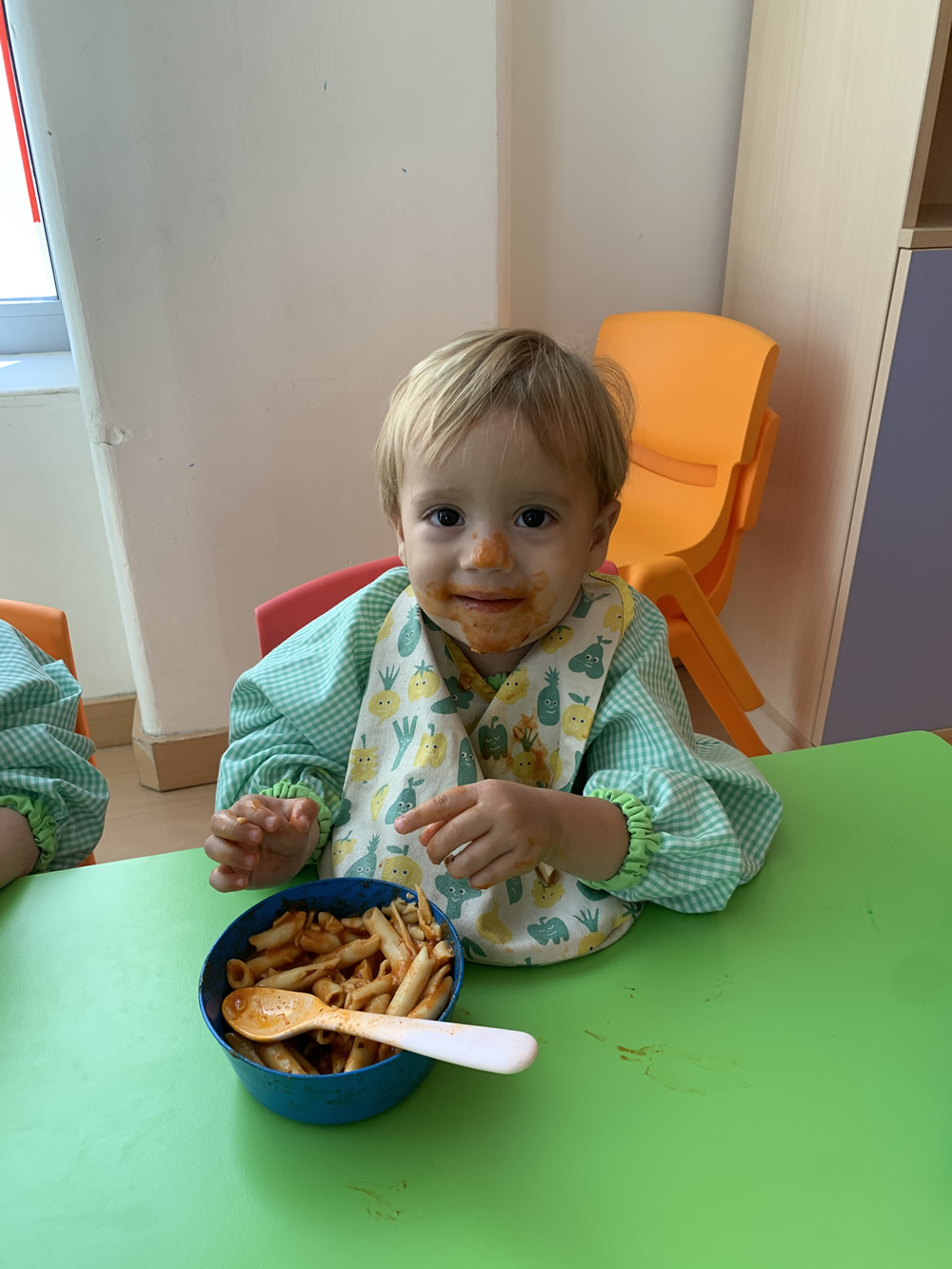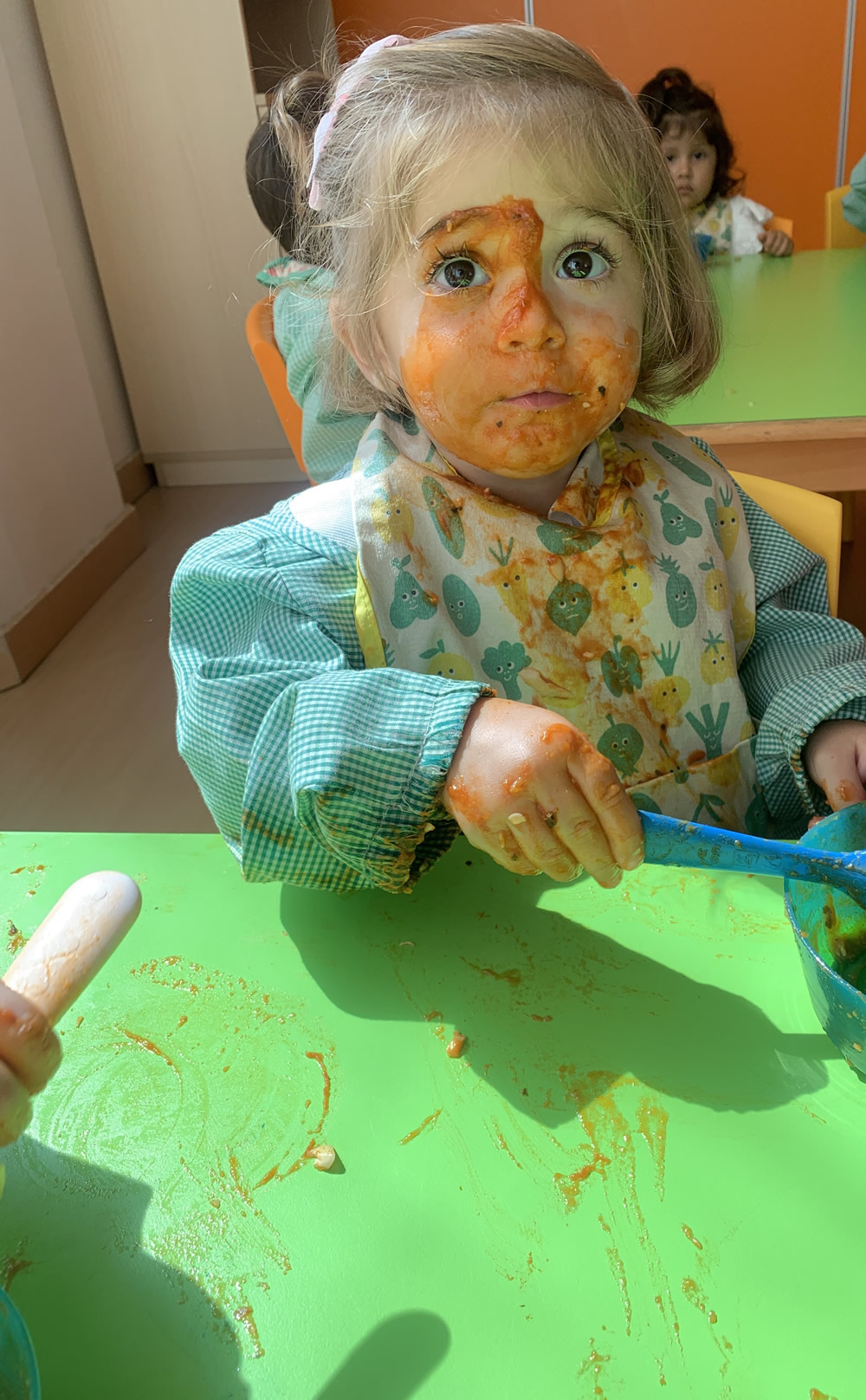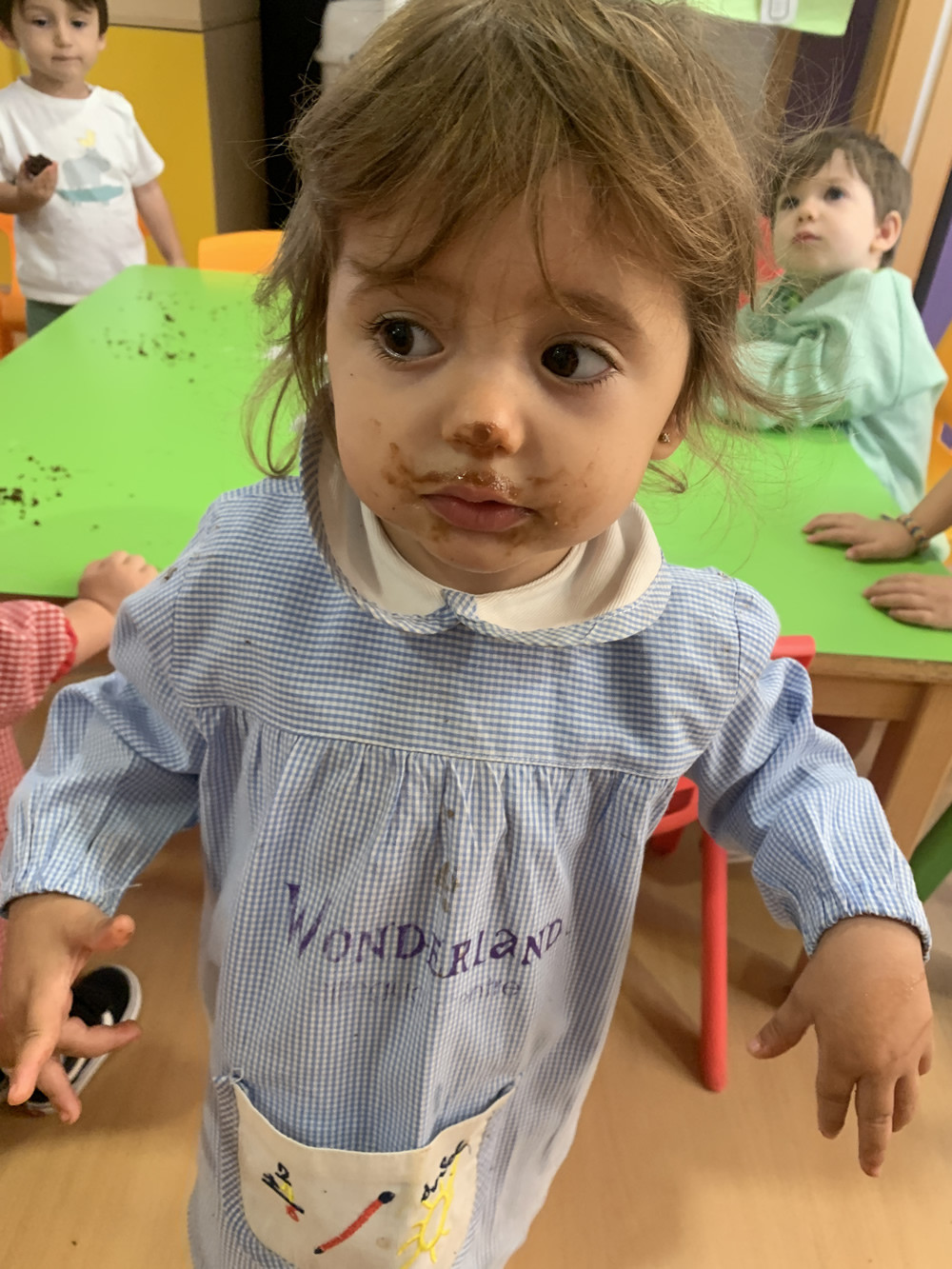We all know that babies and toddlers are messy. Just give them a bowl and pasta and they somehow end up with more in their ears than in their mouths. Although as caregiver this might be frustrating (and definitely funny), it is actually really important for children to be able to make a mess - especially with food.
Did you know that children need to practice hard to achieve good body coordination?

If you have a toddler at home try to have them do normal jumping jacks. Seems like an easy enough task right? But not really for a small child. However, parents, do not worry - children develop in different speeds and this will come easier for them as they develop their Cerebellum.
So how does this connect to making a mess? Well let’s bring back the bowl of pasta as the example. Picking up a piece of sticky pasta from the bowl is not neccesarily easy for a child, whether they do it with the help of a spoon or just with their fingers. More often than not the piece of pasta will fall off the spoon or jump out of their fingers. So already the child is practicing fine motor skills - something that we all practised at a younger age without realizing. Once on the spoon, or in a firm grip we reach the second step: how do I get this food into my mouth. This practices hand-to-mouth-coordination. Finding the mouth is easier said than done for a small child, so they are going to make mistakes. But we all know that making mistakes are a part of learning - so why not let our little ones make this big mess?

Another reason why mess-making is often necessary for a child is because it develops a good relationship with food. Food is fun! Food is good for you! Food will make you happy! If the child is very particular with the food he or she eats, like most children are, then more often than not meal time will become connected to anxiety - not only for the child but often for the caregiver as well! Letting them make a mess and treat the food as a source of happiness will relieve this anxiety for them (and hopefully for us a result).
An often used phrase in your typical household is ”do not play with your food”. But before you say so; think about the current relationship the child has with food and what you would like their relationship to be. If this is a really big issue for the child - maybe take it one step even further and join in for the mess making. The child will surely find this hilarious and it will make for a good moment to remember for the whole family!

So the next time you are meal prepping for a young child, think about how every moment of the day for a young one is a moment to develop and grow. Maybe make sure you have time for a big cleanup, and make some extra sticky food for them to practice coordination and mess making with.
And always remember: make food enjoyable